Jesse Lambert-Harden, a Nutrition and Lifestyle coach specialising in women’s health and performance and Head of Fuel for Her Spirit, explores some practical advice to help you to adhere to a balanced diet throughout the winter months.
As the winter months roll in we are more susceptible to cold and flu viruses, our moods may be compromised and we can lack the motivation to stick to our usual diet, favouring comforting foods. A balanced diet that incorporates all food groups is important all year round to support our health, bodily functions, prevent nutrient deficiencies and repair and fuel the body.
Particularly in autumn and winter, a balanced diet can help build our defences and support the immune system which can help to reduce the risk of catching certain illnesses, but also limit the severity and duration.
Balance your plate
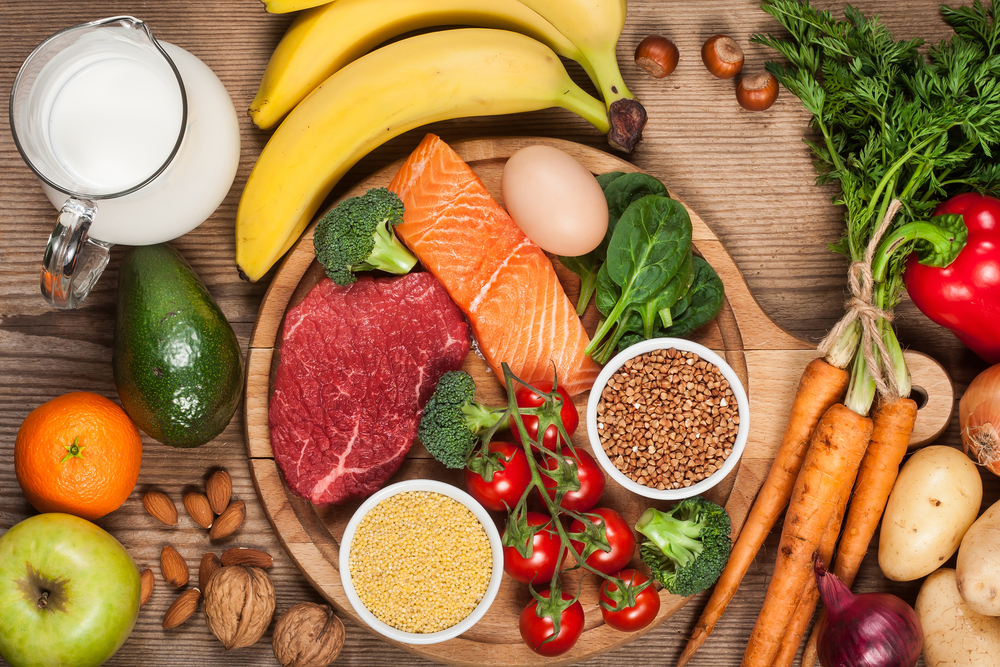
We all know the balance on your plate is the best way to get the correct intake of nutrients to support your body and immune function, whilst still ensuring a satiating meal that helps prevent hunger. The cold and wet winter months can easily lead us astray from having a balanced plate, as we opt for more or larger portions of warm and comforting foods. The best way to keep a balance is the following guide: a quarter of the plate, or a palm-sized portion of protein, a quarter of the plate carbohydrates, half the plate of fruit and vegetables and a thumb-sized portion of fat.
Batch cook
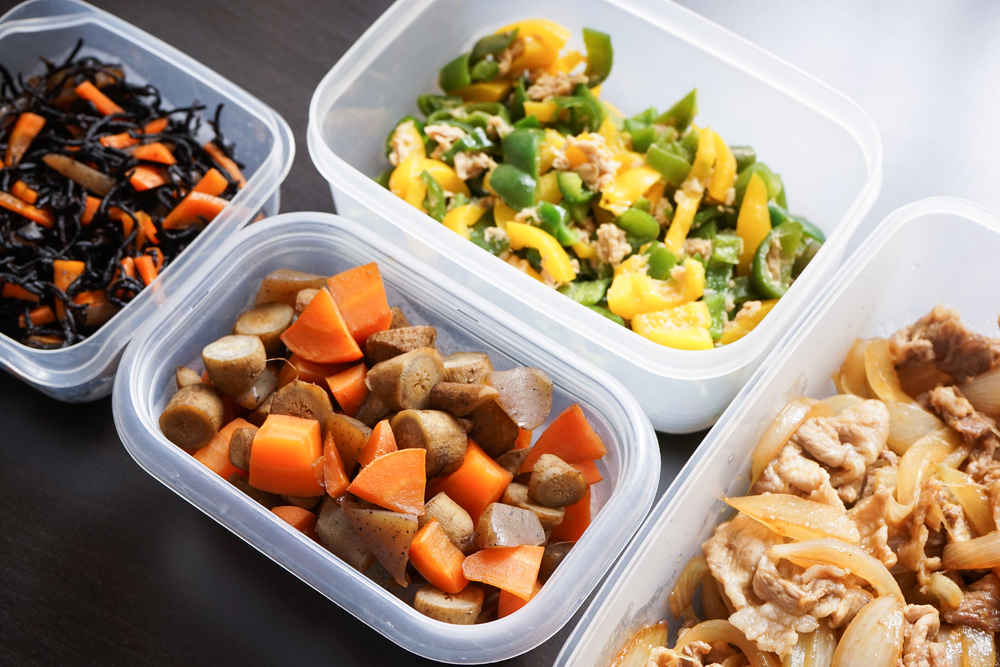
Make a weekly menu and batch cook some of your meals on a week/weekend night when you have some time free. It’s a great way to stay on track and not get caught out when you come in from the cold and don’t feel like spending too much time in the kitchen making a meal. Comfort food doesn’t have to mean non-nutrient dense. Now is a great time to dust off the slow cooker and make some homemade stews, curries and pasta sauces, which are great meals to freeze and use a variety of different ingredients to up your nutrient intake.
Don’t skip the fruit and veg
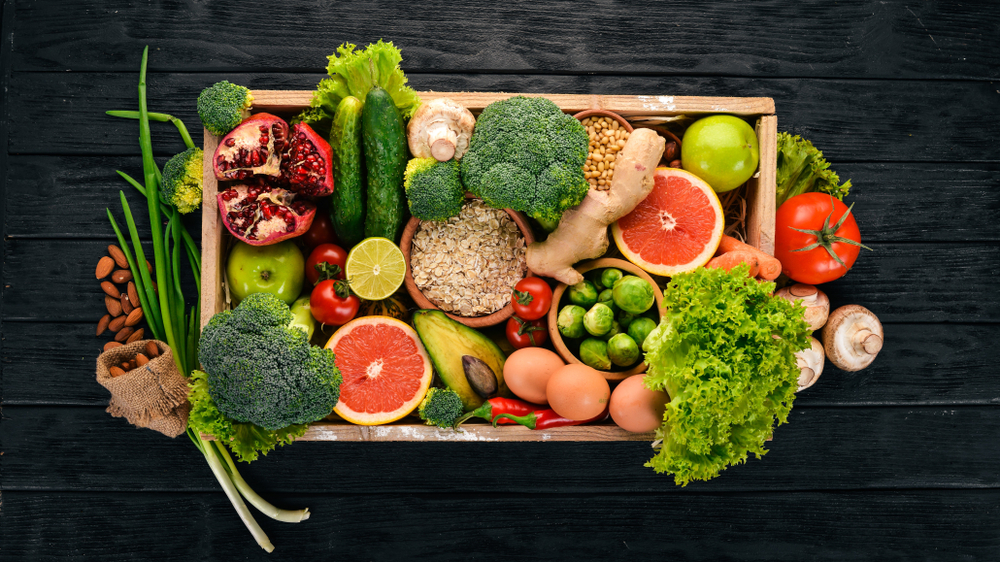
Winter might not have summer’s abundance of fruit and vegetables, but there are numerous ways of increasing your intake of fruit and vegetables that are still delicious and satisfying. Practically speaking aim for half a plate at each meal, but you can also get a bit creative with curries, stews, sauces, smoothies, sales and breakfasts. There is plenty to be made with seasonal vegetables, but you can also use frozen and tinned versions.
Take the right vitamins and minerals

There are some vitamins and minerals that will be more beneficial to support your immune function throughout the winter. While these can be taken in the form of a tablet, where possible I encourage the consumption of these vital vitamins and minerals through food to help stick to that balanced diet.
• Vitamin C is easily obtained by eating a variety of fruit and vegetables, particularly those such as citrus fruits, peppers, tomatoes, green vegetables and berries.
• Vitamin D is synthesised by the body from the sun and is found in small amounts in eggs, oily fish and fortified foods but is generally not considered to be enough to support a healthy diet. Deficiency is thought to affect 50 per cent of the population and most should consider supplementation, at least throughout the winter months.
• Vitamin A is found in fruit and vegetables particularly those that are coloured orange, dark leafy greens, eggs and some meat.
• Vitamin E is found in many foods, but rich sources are cereals, egg yolks, nuts and seeds.
• Iron, found in meat, pulses, beans, lentils, dark leafy greens, nuts and seeds and fish.
• Zinc, found in milk, cheese, whole grains, pulses, nuts and eggs.
• Selenium, found in brazil nuts, meat, fish, eggs, bread.
• Omega 3 fatty acids found in oily fish, opt for two portions a week.
Hydrate even in cold weather

Hydration is important all year round, but many find it harder in the winter. All fluids count, warm drinks may be preferable, but try not to overdo the caffeine as it is a diuretic (increases urine production). Instead opt for herbal teas or low-calorie drinks and soups. Five clear urinations a day is a sign of good hydration. If you are looking to prevent weight gain, minimise the number of comforting hot chocolates and coffees with added extras.
Fuel up sufficiently
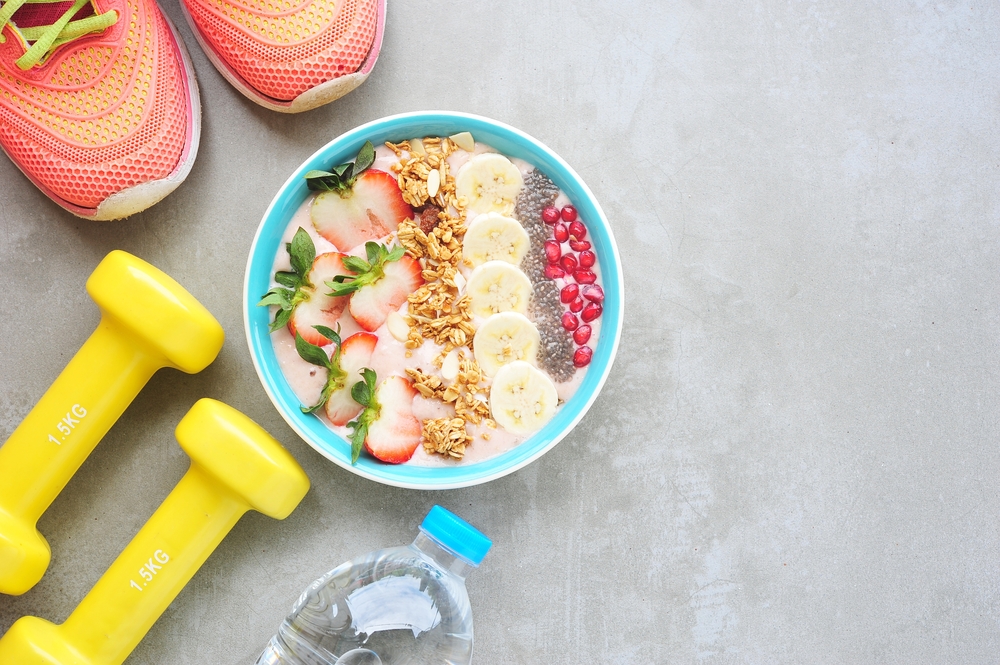
If you’re looking to keep a balanced diet over winter you’re probably also looking to maintain your levels of workouts. You need to ensure you fuel your workouts correctly to maximise your energy levels and performance and recover well and prevent injury. Perhaps more importantly, exercise and dieting are stressors on the body therefore inadequate fuel may result in an increased propensity to catching infections. Try to keep your workouts at a consistent time and day of the week so you can make sure you have your food and water prepared accordingly.
Eat mindfully
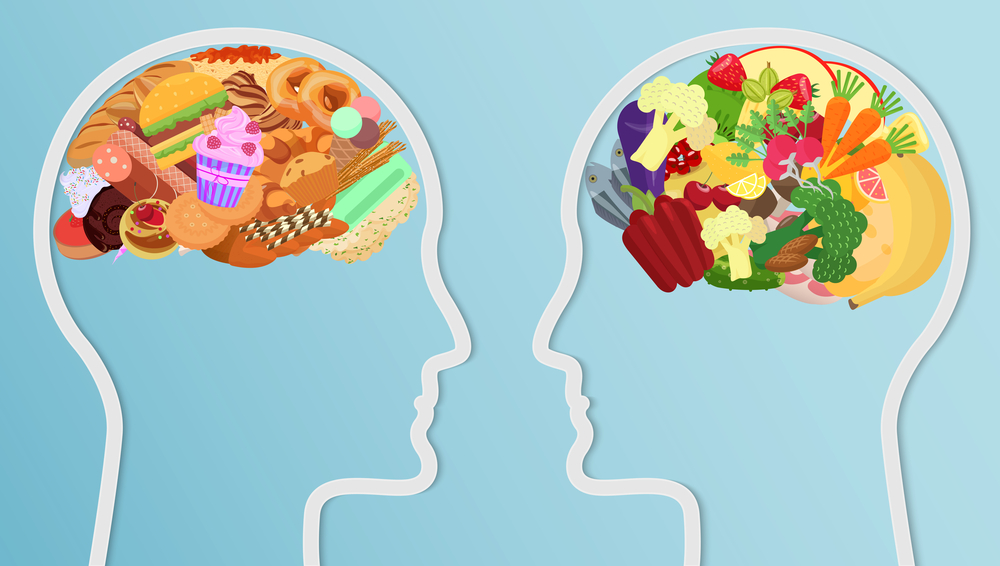
The best diet is one that you can stick to, and a large part of being able to do that is enjoying what you eat. Eat mindfully without distraction, away from screens so that you recognise when you are full and avoid overeating. Also enjoy the foods, in moderation, that are often labelled as “Off The List” such as cakes and chocolate. The restriction only leads to you wanting it more, so by sensibly incorporating them through the ‘80/20’ approach, you are more likely to stick to a balanced diet. 80 per cent nutritious choices and 20 per cent flexibility for less nutrient-dense options. It’s an approach backed by numerous nutrition professionals as it’s feasible for all, allows for a variety of foods, and avoids deprivation.
The winter doesn’t need to be a season of illness and weight gain. Incorporating some of the tips above consistently along with plenty of sleep will help you to thrive and enjoy being healthy all year round.
More information
Her Spirit is a global community that harnesses the collective power of real women to offer holistic advice, coaching and plans for Mind, Body and Fuel. To access Her Spirit’s tailored nutrition plans download the free app, visit the website.







